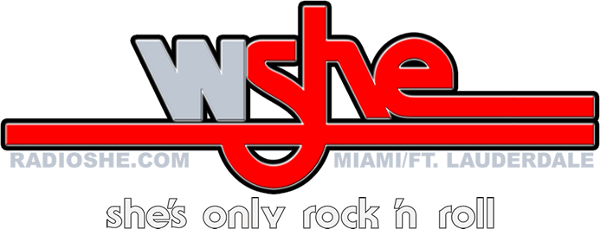
|
|


At first the record went largely unnoticed, but a few weeks later the group released a long, dramatic single called "A Horse With No Name," which became an instant hit in early 1972, reaching No. 1 on the U.S. charts. The single was added to a new pressing of album simply called "America" and it too reached No. 1 and went platinum, pushing Neil Young's "Heart of Gold" off the top of the charts. Following their British success, America returned to North America, beginning a supporting tour for the Everly Brothers.
"I Need You" also cracked the Top Ten that summer and the group began work on its second album, "Homecoming". "Ventura Highway", the first single released from this collaboration, became their third straight Top Ten hit in December and the group was awarded a Grammy Award for Best New Artist of 1972.
Then, for some strange reason, the hits stopped coming. They had only one minor Top 40 entry in 1973. "Hat Trick", the group's third album, was released toward the end of 1973, but failed to make it past number 28 on the American charts.
Under the direction of former Beatles' producer, George Martin, the band's fourth album, "Holiday", was released in the late fall of 1974 and returned America to the top of the charts, peaking at number three and launching the hit singles "Tin Man" and "Lonely People." "Sister Golden Hair", pulled from 1975's "Hearts" became their second number one single. That same year, the group released History/America's Greatest Hits, which would eventually sell over five million copies. 1976's "Hideaway" reached the Top 20, while 1977's "Harbor" reached No. 21.
Despite their success, the group's audience was beginning to decline. In 1977, Dan Peek left America to become a Christian Contemporary solo performer, recording several successful albums on his own before joining the Christian soft rock band "Peace". The other two members of America kept the group going with the help of guitarist Michael Woods, fulfilling their contract with Warner Brothers with a 1978 live album and then moving to Capitol.
The new America made its debut in 1979 with "Silent Letter" followed by 1980's "Alibi", before rebounding in 1983 with "View From the Ground" and the Top 10 single "You Can Do Magic." After the release of 1983's "Your Move" the group tried a new approach in an attempt to regain market share, switching to synthesizers and bringing in numerous studio musicians for 1984's "Perspective", produced by dance guru Richie Zito (Berlin). The album failed miserably and peaked at No. 185 and a subsequent live album failed to chart at all, after which their contract with Capitol Records ran out.
Without a recording deal, America continued to tour, buoyed by fact that in October, 1986, the Recording Industry Association of America (RIAA), awarded two America albums with platinum-record status for sales of over a million copies each: "America" (the debut album from 1971), and "History/America's Greatest Hits". The following year, 1987, saw the release of both of those albums on the compact disc format along with the "In Concert" album from Capitol.
In 1991, Beckley and Bunnell were finally back in a recording studio to contribute four cuts to a new Rhino Records greatest hits package called "Encore".
In 1993, after eight years without a record deal, America was finally offered the chance to record a new album with the right amount of creative control. They signed a multi-album contract with Chip Davis's Omaha-based American Gramaphone Records and in May 1994, the album called "Hourglass" reached record stores, America's first full-length studio release in nearly a decade. The release never came anywhere close to making the Billboard charts and an attempt at a hit single in "Young Moon" flopped. American Gramaphone exercised its option not to pick up another America album.
Beckley and Bunnell continued on and in April 1998, it was finally announced that not only was America going to be releasing a new album in June called "Human Nature", but that they had also signed a multi-album contract with a new record company, Oxygen Records, a branch of the King Biscuit Entertainment Group.
In July 2000, Rhino Records released "Highway: 30 Years Of America", a three-CD box set which includes 64 re-mastered tracks spanning the group's career. Included were a handful of alternative mixes and demos such as an early take of a stripped-down "Ventura Highway". A year later, in August 2001, Rhino released a trimmed-down single disc compilation, "The Complete Greatest Hits", which assembled all of the group's 17 charting Billboard singles. Peaking at #152 on the Billboard Hot 200 chart, the CD was America's first charting album since "Perspective" in 1984.
In October, 2002, America released their first Christmas album, "Holiday Harmony" and in November of that same year, issued a live album, "The Grand Cayman Concert", which featured just Beckley and Bunnell on acoustic guitars. In April 2006, after a few solo concerts, Beckley released his third solo album, "Horizontal Fall", which went mostly ignored by both critics and buyers. Over thirty years after the band first formed, America continued to tour and on January 16th, 2007, they released "Here & Now", the band's first major label studio album in over twenty years.
In 2011, Beckley's solo CD "Unfortunate Casino" was another flop. That same year, America released "Entitled Back Pages", a collection of twelve tracks covering songs by artists ranging from Bob Dylan and Joni Mitchell to Adam Schlesinger and the Gin Blossoms. Sadly, July 24 brought the news that founding member Dan Peek had passed away of heart disease at the age of 60.
Beckley and Bunnell continued to tour across the U.S., Europe and South America. Their 2015 schedule had them booked for shows in the U.S, New Zealand and Australia.

